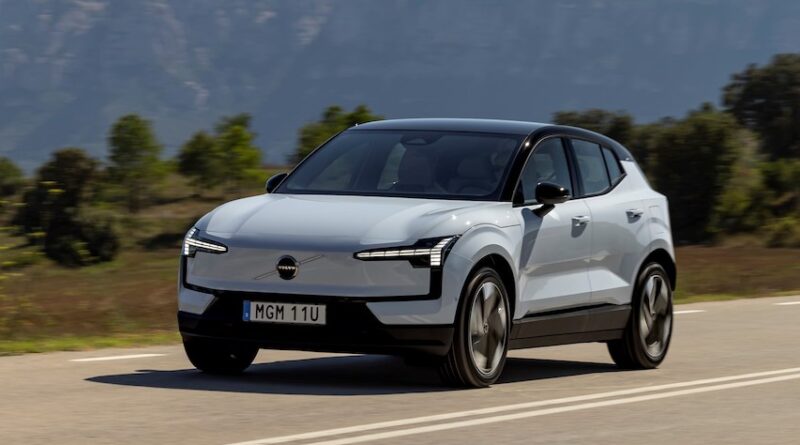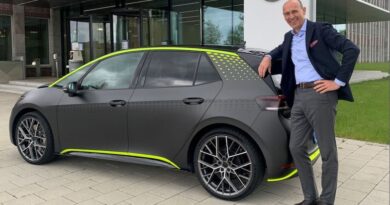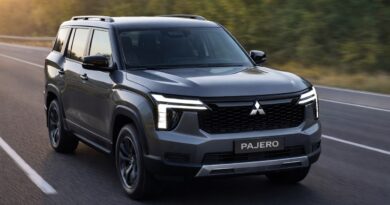What EV headwinds? 2024 Volvo EX30 sells out! Brand’s switch to all-EV in 2026 in Australia locked in
Buoyed by the sell-out success of the newly-arrived Volvo EX30 electric hatch and unphased by some troubling recent challenges for the local EV market, the Swedish brand’s Aussie outpost has declared it remains fully committed to going all-EV in 2026.
Priced from $59,990 (plus on-roads), the first 1500 examples of the EX30 pre-sold even before customer deliveries began this week.
That good EV news came after electric car sales declined in April for the first time since November 2020 and as Tesla continued price-cutting and Peugeot piled in with a massive $25,000 discount on its run-out e-2008 electric SUV.
READ MORE: EC40, EX40, XC40… Has Volvo just reduced or increased its electric car naming confusion?
READ MORE: BMW i5 and Benz EQE-fighting Volvo ES90 electric car locked-in for a 2024 debut
READ MORE:olvo EX30 small electric SUV revealed, pricing confirmed for Australia ahead of late 2023 arrival
But all that has left Volvo Car Australia chief Stephen Connor unwavering when it comes to the 2026 abandonment of ICE first announced in 2022.
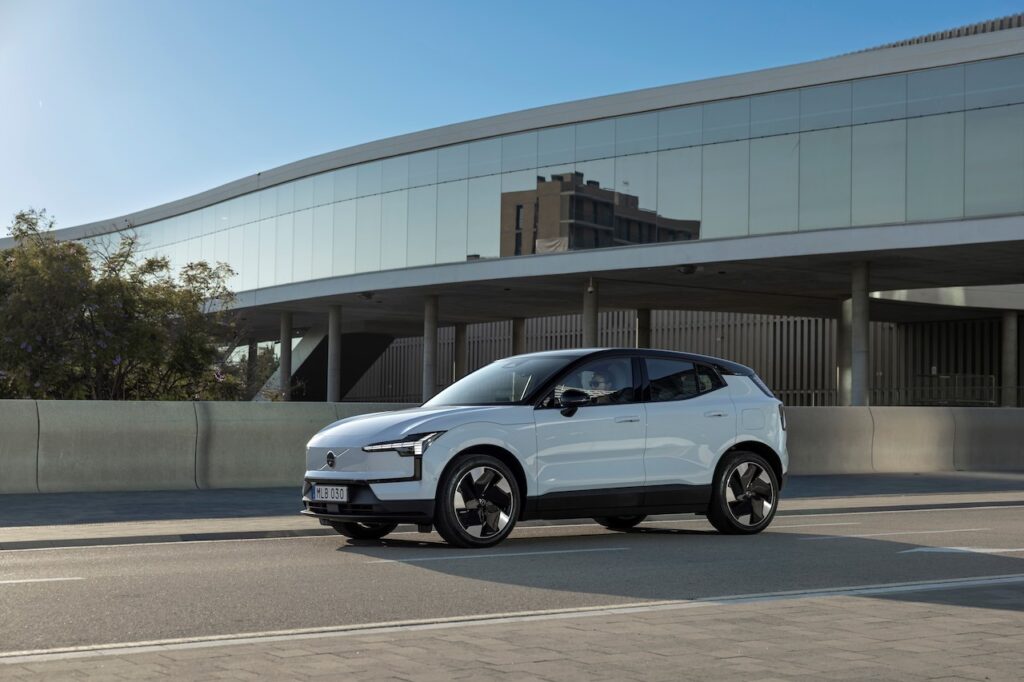
“We’re still on track to do that,” Connor said.
“Next year we’re going to be about 80 per cent (full EV sales), so it’s only the last 20 per cent we’re talking about.”
“I think it’s the right thing to do,” he continued. “If somebody doesn’t want to buy a Volvo because they don’t believe in our product strategy, then so be it.
“People may not want to buy the product, but they respect Volvo for being authentic and following through in the sustainability pitch.”
Connor batted away the EV headwinds, including the significant Tesla price cuts and Peugeot’s slash and burn.
“I’m not worried about Peugeot; we don’t compete with them,” he said.
“I’m also not worried about Tesla when they keep on dropping prices. There’s no value in what they’re doing; there’s no value in their brand; there’s no value in their longevity.”
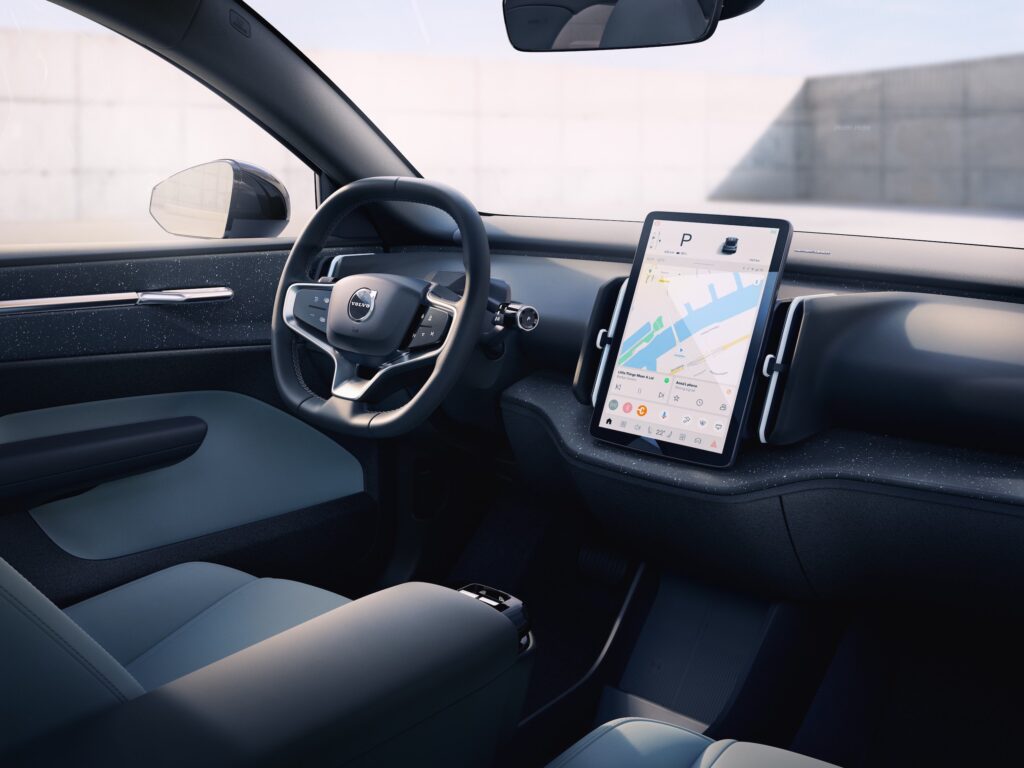
“I don’t sit here and price our cars based on the competitors,” he continued. “If I did that, it’s just a downward spiral. You can’t compete with somebody dropping $25,000 off a Peugeot overnight, nor should you.”
The Chinese-built EX30, which boasts solid numbers on all key parameters: range, performance, equipment, charging and sticker price, has sold out all 1300 MY24s allocated to Australia, while another 200 MY25s have been sold as well.
The EX30’s success will play a key role in keeping Volvo ahead of luxury heavyweights BMW and Mercedes-Benz in terms of EV sales in Australia and best of the rest behind Tesla.
“The EX30 will make up about 30 per cent of our total sales,” Connor explained. “In our product plan we’ve got about 3900 (EX30s) as our full-year volume.
“If you look at premium brands at the moment, and this includes Tesla for argument’s sake, we were number two last year for total premium [EV] sales.
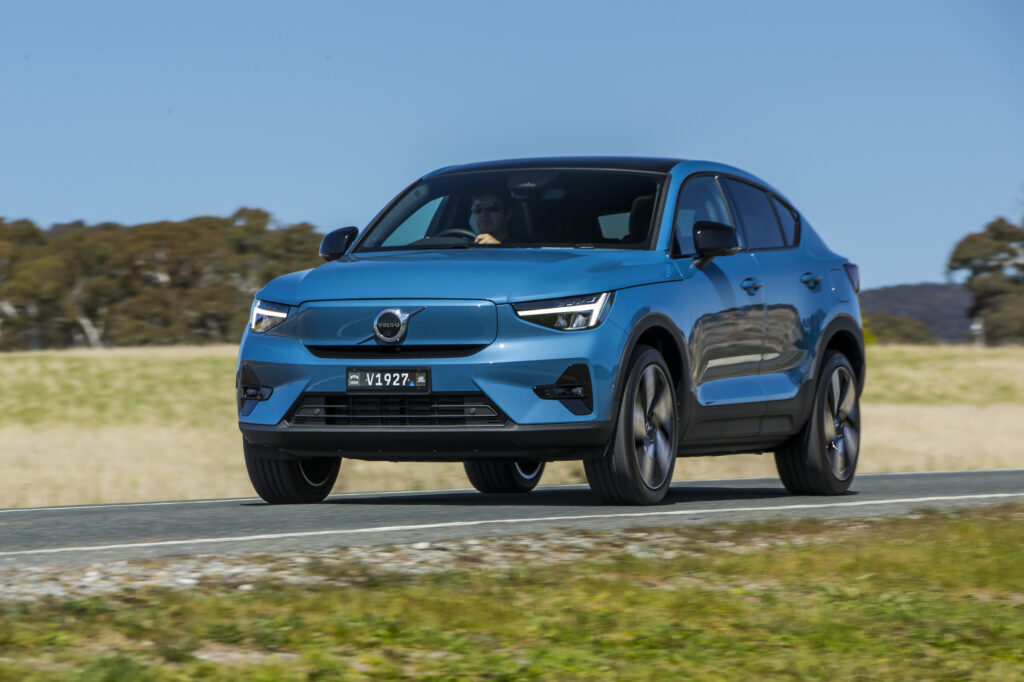
“If we sold 4000 (electric) XC40s and C40s, and then say 4000 EX30s, that’s 8000 cars. That would definitely keep us in number two spot.”
On paper, the EX30 has obvious appeal. The entry-level Single Motor Plus ($59,990) uses a 69kWh nickel manganese cobalt battery, offers 200kW/343Nm, 462km range, 0-100km/h in 5.3 seconds and can DC recharge at 153kW. Little to grumble about there.
There’s a higher-spec Single Motor Ultra ($66,290), but headlines are reserved for the $71,290 Twin Performance Ultra.
Using the same 69kWh battery, its figures are 315kW/543Nm (combined), 445km range and 0-100km/h in 3.6 seconds (!) – making it Volvo’s fastest model.
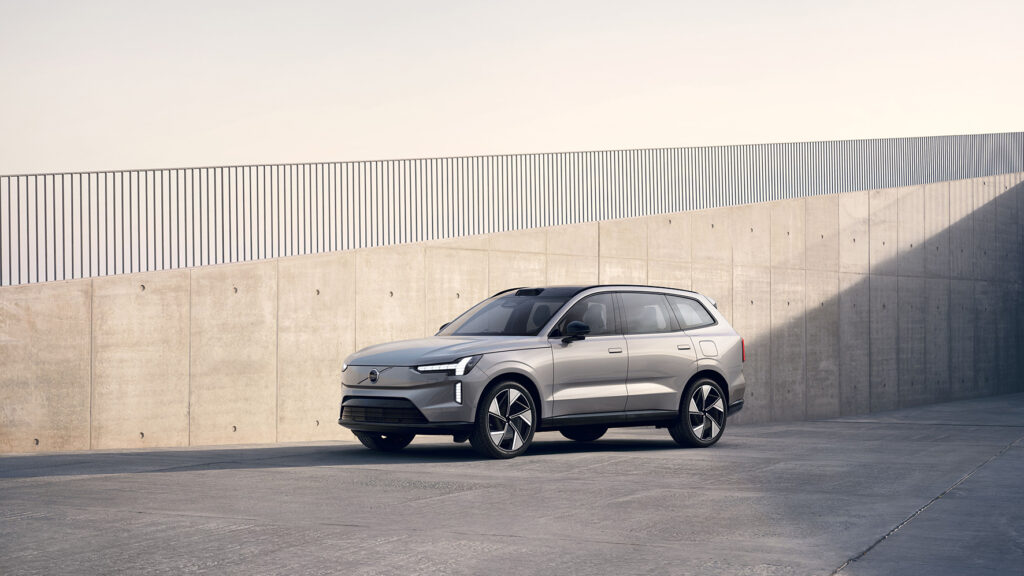
These higher grades have seen $1300 price rises from this month (orders placed before this time are unaffected), while the entry-level remains with that appealing sub-$60,000 tag.
Volvo’s next EVs will be the brand’s delayed flagship, the seven-seat EX90 large SUV. It’s due to land in Australia at the very end of this year.
Watch out for Iain Curry’s first drive of the Volvo EX30 coming this Sunday.

